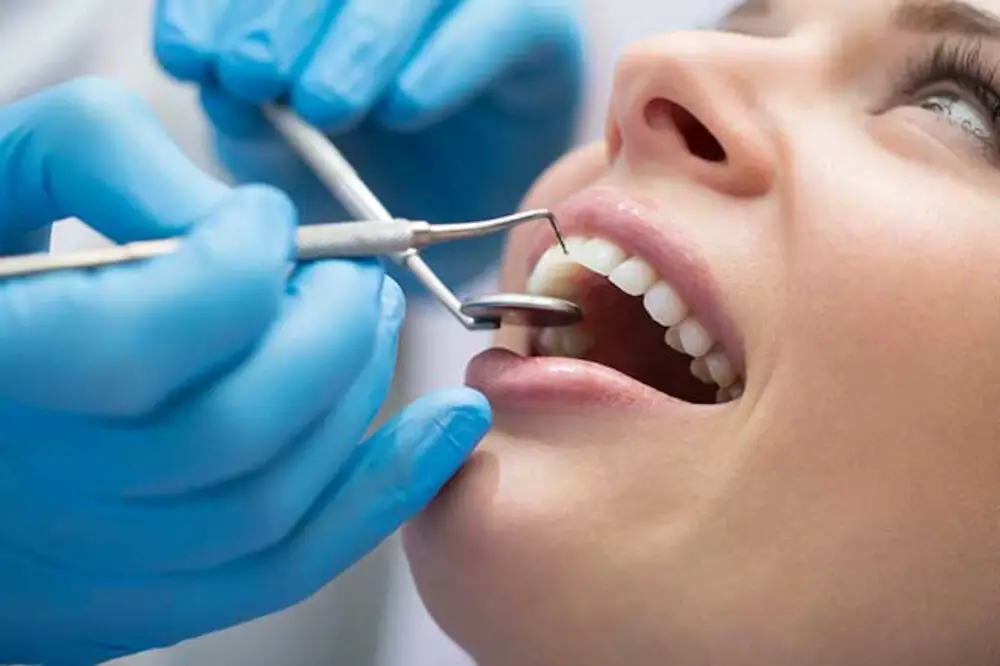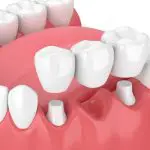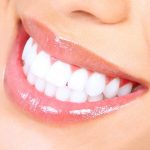Why Does My Teeth Hurt When I Bite Down? Common Causes and Remedies

Have you ever experienced sharp pain in your teeth when biting down on food? If so, you’re not alone. Many people suffer from tooth sensitivity or pain when chewing, which can be caused by a variety of issues. Ignoring this pain can lead to further damage to your teeth and even tooth loss. However, identifying the cause of the pain and seeking treatment can help alleviate discomfort and prevent future issues. There are several reasons why your teeth may hurt when you bite down. One common cause is tooth decay, which occurs when bacteria in the mouth produce acid that eats away at the enamel of the tooth. When decay reaches the inner layer of the tooth, called the dentin, it can cause sensitivity and pain when eating. Another cause of tooth pain when biting down is a cracked or fractured tooth, which can be caused by injury or wear and tear over time. Additionally, gum disease, teeth grinding, and certain dental procedures can also cause pain when biting down. Understanding the cause of your tooth pain is the first step in finding an effective solution.
Dental pain can be excruciating, especially when you’re trying to eat. When you experience pain in your teeth while biting down, it can be an indicator of various dental problems. These problems may include cavities, cracked teeth, gum disease, or misaligned teeth. If left untreated, these issues can lead to more severe dental complications, such as infections or tooth loss. Fortunately, there are remedies available to alleviate the pain and address the underlying causes, including fillings, root canals, or orthodontic treatment. It is crucial to address any dental pain or discomfort promptly to prevent further damage and maintain optimal dental health.
It is crucial to address the issue of teeth pain when biting down as it can indicate various dental problems that require immediate attention. Ignoring this symptom can lead to the worsening of the underlying condition, resulting in severe pain and discomfort. In most cases, tooth decay, cracked teeth, and gum disease are the primary causes of pain while biting down. Therefore, it is essential to identify the root cause of the pain and seek prompt treatment from a dentist. Regular dental check-ups, good oral hygiene practices, and a healthy diet can prevent the occurrence of dental issues and ensure the overall health of your teeth and gums.
Tooth Decay

Tooth decay is a common dental problem that occurs when bacteria in the mouth produce acid that erodes the tooth enamel. This acid attack can be caused by consuming sugary or starchy foods and drinks, poor oral hygiene, dry mouth, and certain medical conditions. As the tooth enamel wears away, cavities can form, which can lead to tooth sensitivity, pain, and even tooth loss if left untreated. Regular dental checkups, a balanced diet, and proper oral hygiene practices can help prevent tooth decay. To treat tooth decay, dentists will usually remove the decayed portion of the tooth and fill the cavity with a dental filling. In more severe cases, a dental crown or root canal treatment may be necessary. To prevent further decay, it is important to maintain good oral hygiene habits, limit sugary and starchy foods and drinks, and visit the dentist regularly for cleanings and checkups. Ignoring tooth decay can lead to more serious dental problems, so it is important to address the issue promptly to prevent further damage to the affected tooth and surrounding teeth.
Tooth decay is a common dental problem that occurs when the bacteria in our mouth produce acid that erodes the enamel, the outer layer of the tooth. When the decay reaches the inner layers of the tooth, it can cause sensitivity to hot and cold temperatures, as well as pain when biting down. This is because the pressure from biting down can cause the decayed area of the tooth to move, irritating the nerves and causing discomfort. If left untreated, tooth decay can progress and lead to more severe pain and even tooth loss. Therefore, it’s essential to seek dental treatment as soon as possible to prevent further damage and relieve the pain caused by tooth decay.
Tooth decay is a common dental problem caused by the buildup of plaque and bacteria on the teeth. The symptoms and signs of tooth decay may vary depending on the severity of the condition. Initially, one may experience sensitivity to hot or cold foods and drinks, or a slight toothache. As the decay progresses, the tooth may become more painful, especially while chewing or biting down. The affected tooth may also develop holes or pits, and the surrounding gums may become swollen or tender. In severe cases, the tooth may become discolored or loose, and the patient may experience bad breath or a foul taste in the mouth. If left untreated, tooth decay can lead to more serious dental problems such as abscesses, infections, and even tooth loss.
Tooth decay is a common dental problem that can cause severe pain when biting down. However, there are various remedies available to prevent the progression of tooth decay. One of the most common treatments is a filling, which involves removing the decayed portion of the tooth and filling it with a material such as composite resin or amalgam. Another option is a root canal, which is performed when the decay has reached the pulp of the tooth. During a root canal, the infected pulp is removed, and the tooth is cleaned and sealed. Both fillings and root canals can effectively treat tooth decay and relieve pain. However, it’s important to maintain good oral hygiene practices to prevent future decay and the need for additional dental treatments.
Cracked Tooth

A cracked tooth can be a painful experience, especially when biting down. It occurs when a tooth has a fracture or a crack on its surface, which can lead to discomfort, sensitivity, and pain. This condition can be caused by various factors, such as grinding teeth or biting on hard objects, and it can be challenging to spot. Some symptoms of a cracked tooth include pain when biting, sensitivity to hot or cold, and discomfort when eating or drinking. In some cases, the crack may be visible, while in others, it may be too small to detect without the help of a professional. If you suspect that you have a cracked tooth, it is essential to seek dental attention as soon as possible. A dentist can diagnose the issue and recommend an appropriate treatment plan based on the severity of the crack. In some cases, a filling or bonding may be enough to fix the problem. However, if the crack is severe, a root canal or tooth extraction may be necessary. To prevent a cracked tooth, it is essential to avoid biting on hard objects, wear a mouthguard if you grind your teeth, and maintain good oral hygiene habits. Regular dental checkups can also help detect and prevent any dental issues before they become more severe.
A cracked tooth can cause pain when biting down because it exposes the sensitive nerves inside the tooth to the pressure and force of biting. When a tooth is cracked, the structural integrity of the tooth is compromised, and it can no longer absorb the impact of biting or chewing as effectively. This can lead to a sharp or dull pain when biting down, especially if the crack is deep enough to affect the inner layers of the tooth. Additionally, a cracked tooth can also cause inflammation and irritation in the surrounding gum tissue, further exacerbating the pain and discomfort. If left untreated, a cracked tooth can worsen over time and potentially lead to more serious dental problems, so it is important to seek prompt treatment from a dental professional.
A cracked tooth is a common dental problem that can cause a wide range of symptoms and signs. The most obvious symptom is a sharp pain when biting down on food. The pain can be intermittent or constant, and it may be accompanied by sensitivity to hot or cold temperatures. Other signs of a cracked tooth may include swelling around the affected tooth, a visible crack or fracture, or discomfort when chewing or biting. In some cases, a cracked tooth may not cause any symptoms at all, making it difficult to detect without a dental exam. If you suspect that you have a cracked tooth, it is important to seek prompt treatment from a dental professional to prevent further damage and potential tooth loss.
A cracked tooth can be a painful and uncomfortable experience, and there are several remedies available to treat it. One of the most common solutions is dental bonding, which involves the application of a tooth-coloured resin to the affected area. This resin is then shaped and polished to match the surrounding teeth, providing a seamless and natural-looking repair. Alternatively, a dental crown may be used to cover and protect the damaged tooth. This involves placing a custom-made cap over the tooth, which is cemented in place to provide long-lasting protection. Both of these remedies can be effective in treating a cracked tooth, and your dentist can help you decide which option is best for your individual needs.
Gum Disease

Gum disease, also known as periodontal disease, is a common condition that affects many people worldwide. It’s caused by a buildup of bacteria on the teeth and gums, which leads to inflammation and infection. The early stages of gum disease are often painless, but as the condition progresses, it can cause tooth decay, bad breath, and even tooth loss. Some of the common symptoms of gum disease include red, swollen, or bleeding gums, loose teeth, and receding gums. To prevent gum disease, it’s important to practice good oral hygiene habits, such as brushing twice a day, flossing daily, and visiting the dentist regularly for checkups and cleanings. If you suspect that you have gum disease, it’s important to seek treatment as soon as possible to prevent further damage to your teeth and gums. Treatment options may include scaling and root planing, which involves deep cleaning of the teeth and gums, antibiotics, or surgery in severe cases. With early detection and proper treatment, gum disease can be prevented, and your teeth and gums can stay healthy for years to come. In summary, gum disease is a common condition that can cause a range of symptoms, from bad breath to tooth loss. It’s important to practice good oral hygiene habits and seek treatment promptly if you suspect you have gum disease. With proper care, you can prevent gum disease and maintain healthy teeth and gums for a lifetime.
Gum disease, also known as periodontitis, can cause pain when biting down due to the inflammation and infection of the gums that surround and support the teeth. When the gums are infected, they can pull away from the teeth, creating pockets where bacteria can build up and cause further damage. As a result, the teeth can become loose and shift, causing discomfort and pain when biting down. Additionally, gum disease can lead to bone loss, which further destabilizes the teeth and increases the likelihood of pain when biting down. Proper oral hygiene, including regular brushing and flossing, as well as professional dental cleanings and treatment for gum disease, can help alleviate pain and prevent further damage to the teeth and gums.
Gum disease, also known as periodontal disease, is a common condition that affects the gum tissue and bone supporting the teeth. It often develops due to poor oral hygiene and can cause a variety of symptoms and signs. Some of the most common symptoms of gum disease include swollen, red, or bleeding gums, persistent bad breath, loose teeth, and receding gums. Additionally, individuals with gum disease may experience pain while chewing, sensitivity to hot or cold foods and drinks, and changes in the way their teeth fit together when biting down. If left untreated, gum disease can lead to serious complications, including tooth loss and bone damage, so it is important to seek treatment promptly if you suspect you may have this condition.
When it comes to gum disease, there are several remedies that can help alleviate the pain and discomfort associated with the condition. Deep cleaning, also known as scaling and root planing, is a common treatment for gum disease that involves removing plaque and tartar buildup from the teeth and gums. This can help reduce inflammation and promote healing of the gums. In more severe cases, surgery may be necessary to remove damaged tissue and promote gum regeneration. Other remedies may include antibiotics or prescription mouthwash to help control bacterial growth and reduce the risk of infection. It is important to seek treatment for gum disease as soon as possible to prevent further damage to the teeth and gums.
Temporomandibular Joint Disorder (TMJ)

Temporomandibular Joint Disorder (TMJ) is a condition that affects the jaw joint and the muscles responsible for moving the jaw. It can cause pain, discomfort, and difficulty in opening and closing the mouth. TMJ disorder can be caused by a variety of factors, such as teeth grinding, stress, injury to the jaw or face, arthritis, and misaligned teeth or jaws. Some common symptoms of TMJ disorder include jaw pain or stiffness, clicking or popping sounds when opening or closing the mouth, headaches, earaches, and difficulty chewing or speaking. If you suspect you have TMJ disorder, it is important to consult a dentist or doctor for a proper diagnosis and treatment plan. Treatment options for TMJ disorder may include pain relievers, muscle relaxants, physical therapy, and in severe cases, surgery. Additionally, avoiding hard or chewy foods, practicing relaxation techniques, and using heat or cold therapy can help alleviate symptoms. With proper care and management, individuals with TMJ disorder can experience relief from pain and discomfort and improve their overall quality of life.
TMJ or Temporomandibular Joint Disorder is a condition that affects the joint connecting the skull and the jawbone. This joint is responsible for the movement of the jaw when biting, speaking, and chewing. When this joint is damaged or inflamed, it can cause pain, swelling, and discomfort. When you bite down, the pressure on the joint is increased, which can exacerbate the pain. This can also cause the teeth to become misaligned, making it even more difficult to bite down without experiencing pain. In severe cases, the pain can be so intense that it can radiate to the ears and neck, making it difficult to perform daily activities. Proper diagnosis and treatment can help alleviate the pain associated with TMJ.
Temporomandibular Joint Disorder (TMJ) can cause a range of symptoms and signs. These can include pain and tenderness in the jaw area, especially when chewing or speaking. Clicking or popping sounds in the jaw when opening or closing the mouth may also be present. In some cases, the jaw may become locked, making it difficult to open or close the mouth. Headaches, earaches, and neck pain are also common symptoms of TMJ. Additionally, some individuals may experience changes in the way their teeth fit together or even experience tooth sensitivity. If you are experiencing any of these symptoms, it is important to see a dentist or doctor to receive an accurate diagnosis and appropriate treatment.
Temporomandibular joint (TMJ) disorders can cause discomfort and pain in the jaw, neck, and face. There are several remedies available for the treatment of TMJ disorders. Medications such as nonsteroidal anti-inflammatory drugs (NSAIDs), muscle relaxants, and tricyclic antidepressants can help alleviate the pain and inflammation associated with TMJ. Physical therapy exercises, such as jaw stretching and strengthening, can also help relieve TMJ symptoms. In addition, lifestyle modifications such as avoiding hard or chewy foods, practicing good posture, and reducing stress can help prevent TMJ symptoms from worsening. A combination of medication and physical therapy is often the most effective approach to treating TMJ disorders, but in severe cases, surgery may be necessary.
Tooth pain when biting down can be a frustrating and uncomfortable experience, and there are several common causes to be aware of. One possible culprit is tooth decay, which can occur when bacteria in the mouth produce acid that gradually erodes the enamel and dentin of the tooth. Another possible cause is a cracked or fractured tooth, which can result from trauma, grinding, or simply weakening over time. Additionally, gum disease and abscesses can cause pain when biting down, as can a misaligned bite or a damaged filling. While the underlying cause of tooth pain when biting down can vary, there are a range of remedies available, including over-the-counter pain relievers, dental treatments, and lifestyle changes such as avoiding hard or sticky foods.
Consulting a dentist for proper diagnosis and treatment is crucial when it comes to dental health. Your teeth are a vital part of your overall health, and any issue with them can cause severe discomfort and pain. A dentist will examine your teeth, gums, and mouth to identify the cause of your pain and recommend the appropriate treatment. If left untreated, dental problems can worsen, leading to more significant health issues. Seeking professional dental care ensures that any dental issues are detected early and treated promptly, preventing further complications. Therefore, it is essential to consult a dentist regularly to maintain good oral health and prevent dental problems from escalating.
In addition to seeking prompt dental care for any tooth pain or discomfort, there are several steps you can take to maintain good oral health and prevent future pain. Regular brushing and flossing are essential for removing plaque and bacteria that can lead to tooth decay and gum disease. It is also important to avoid sugary and acidic foods and drinks that can erode tooth enamel. Furthermore, visiting your dentist for regular check-ups and cleanings can help catch any potential issues before they become painful problems. By taking these simple steps, you can help ensure that your teeth and gums stay healthy and pain-free for years to come.
Conclusion

In conclusion, tooth pain when biting down can be a frustrating and uncomfortable experience. However, it is usually caused by common issues such as tooth decay, cracked teeth, or gum disease. Ignoring the symptoms can lead to further complications such as infections or tooth loss. Therefore, it is crucial to seek professional dental advice and treatment promptly. Fortunately, there are remedies available, such as dental fillings, crowns, or root canals, depending on the severity of the issue. Maintaining good oral hygiene practices and regular dental checkups can also prevent future tooth pain and ensure a healthy smile. Remember, taking care of your teeth is a vital part of maintaining overall health and well-being.






